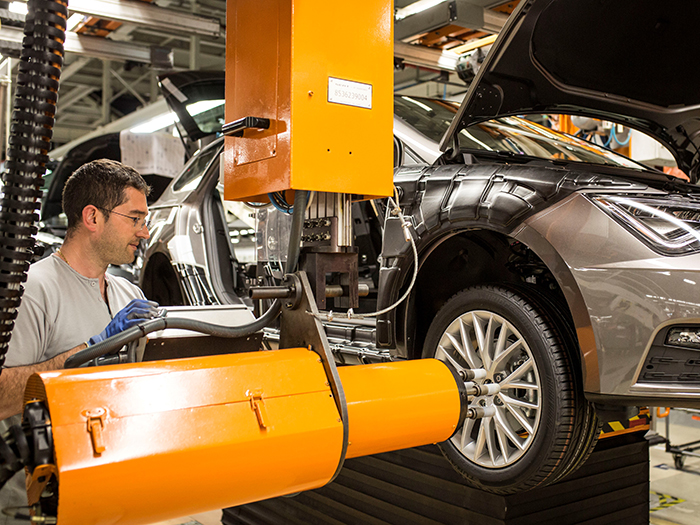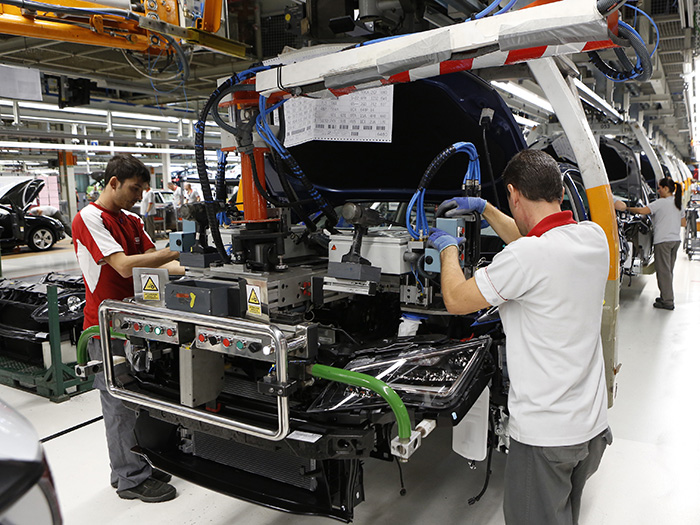Smart factory and IoT: SEAT is ever closer to Industry 4.0
The fourth industrial revolution will transform production processes by introducing the Internet of Things, making factories progressively smarter.
Meeting the target of an efficient and sustainable mobility accessible to all is not just about designing cutting-edge cars, but also manufacturing them in a streamlined way.
This is why it is important to have the best production processes, in which every single detail contributes to create a perfect whole system. SEAT has started out along a road to transformation by progressively incorporating tools and technologies that will stand out in future industries.
Avant-garde technologies
Advanced automation, collaborative robotics, automatic guided vehicles (AGV), exoskeletons, virtual reality, 3D printing or augmented reality are just some of these innovative technologies, and they are all already part of SEAT’s daily work.
The Martorell manufacturing plant already operates according to the smart factory concept, with innovation as its backbone and digital data and IoT as its main raw material.
From machines to persons

Implanting this vision not only involves changing production processes, but also means training people in a new way of working.
Consequently, the Industry 4.0 concept is moving closer to all SEAT employees. The Spanish brand is already a productivity benchmark and continues to progress toward the future.
The factory of the future

At Martorell the finishing touches are being put to the highest automatic store in Spain. This store stands 43.7 metres high with capacity to manage 119,000 boxes of components with 100% automated solutions. At the same time, work is being done to make maintenance in the factory totally predictive by 2025.
Predictive maintenance will guarantee revisions only when necessary, making work more selective and optimised. Furthermore, SEAT is also contemplating introducing other measures, such as integrating new software and hardware in Production and Logistics.
Data, the great value
Digitalising processes not only makes them more effective but also provides a great quantity of data which, in turn, provides value through the large amount of information that is made available on the whole production cycle. This is why there is a tendency to describe data as a new raw material, a real source of value that feeds the processes and makes it possible to really digitalise the company.
Source: SEAT S.A.
